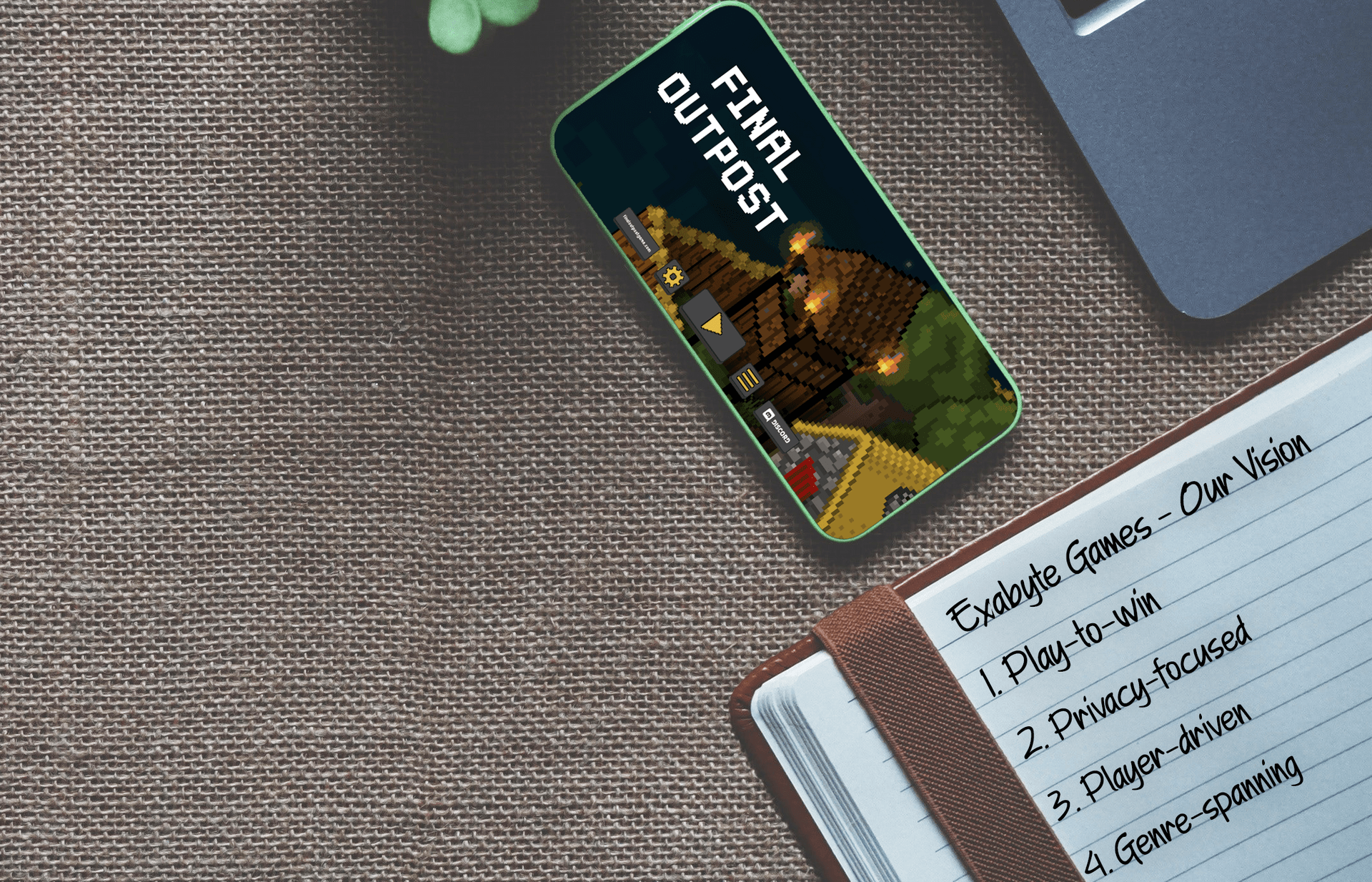Exabyte Games: Our Vision
July 05 2023

What is Exabyte Games?
I believe much of the answer lies with the humans behind the name. They make this company what it is. However, I’ll save the pleasure of introducing the amazing people that I get to work with for a future blog post. This month I’ll instead restrict my focus to the values that have brought us together and, most likely, represent the catalyst for the creation of this company.
The foremost commonality that we have is having spent years of our lives playing games. It’s fundamental to the passion we have in our work and is the reason we made the decision to spend our working lives making games. The core values of most teams would stop there. Mutual interest in video games brings us together. Sound familiar? Behind that idea, though, lies the reality.
Growing up with video games is a beautiful, but rather conflicting experience. You develop a respect for the games you played early on in your life, one that influences how you see games released when you’re older. Many see these games as a form of art. Some simply love them for the entertainment. Others derive pleasure from the distraction. When a beloved series loses its allure, comes to an end, or your all-time favourite is never quite met eye-to-eye, a longing for the past or even a frustration with the present can ensue.
As with all cultural phenomena, (1) the games industry is in constant flux. High level gradual changes in how games are made seem to exert an outsized influence on developers, biasing the titles they choose to develop and the creative decisions they take when developing them. This can incite the feeling that a good game is never quite perfect or that the majority of games no longer sit quite right with you.
I can assure you that the same beliefs are held by video game developers all over the world. If anything, developers feel this more than anyone else. They are the ones responsible for creating the next generation of games. They relish that responsibility under normal circumstances and it serves as an excellent motivator to create something new. But when forced to conform to industry trends they see as misaligned with their past experiences and joys, an inner frustration with the present can develop.
Such trends are inevitable. After all, technology continuously evolves, attitudes shift between generations, and the game development landscape adapts to reconcile these changes. Oftentimes, these changes are clearly a force for good. Take for example the recent expansion of the indie games scene (2), modern software that makes it more accessible than ever for individuals to make games, or that more people are playing video games now than ever before in history. (3)
So the question becomes: How can we harness the best of the brilliant technological breakthroughs over the last 15 years without indulging in the more pernicious techniques many developers are now being forced to implement? On the face of it, the problem looks insurmountable; if making video games is a business, it must generate a profit.
Developers have a choice. They could adopt all industry trends, or they could remain cemented in the past. Many video game studios opt for the former, while indie developers abound choose the latter. There is, however, a third option. At Exabyte Games we aim to maintain a balance by regularly reviewing whether or not the latest industry developments are in tune with our values, actively forging our own path to the future of gaming.
This informs our approach to gaming from both a technology perspective and a people perspective.
Take monetisation of free games for example. The pessimistic view exists on both sides; some say freemium games are a powerful form of entertainment but will always be used to extract every last penny from the user, others long for the days when free games didn’t exist and developers had more creative freedom. We, however, believe that one cannot simply stay in the past: some game concepts and granularities do in fact harmonize better with a free-to-play structure. Multiplayer online games and many mobile games fit this pattern. But we also believe that the primary purpose of a game is to entertain, and so development of these kinds of games should be approached with the aim of monetising sustainably, ensuring this minimally impacts the player’s experience. That means the game should be fully accessible as described and any microtransactions should only feel necessary to those who want to support development. Although this responsible implementation almost inherently reduces revenue, this should be seen as the cost of gaining the exposure associated with distributing your game to a market orders of magnitude larger than that of a paid equivalent.
In key with sustainable monetisation, we implement a rigorous approach to player privacy. No ads, no data collection, and no other companies. This one’s pretty straight-forward. If you’re playing a video game, nobody should be measuring your behaviour or recording your activity and selling it without your consent. Or with your consent for that matter.
Enabled by the advent of social media and online community hubs, the tighter relationship between players and developers has been a clear win for gaming as a whole. We take full advantage of this to increase our engagement with the community. One angle that we leverage here is the incredible feedback we get from our players. We believe the community knows where our games should go and we take pride in the vibrancy of ideas and talents volunteered to improve something we created. There are of course limitations to avoid feature creep, but with our approach the development cycle receives a welcome boost in creativity and motivation.
To tie this all together, game developers need good game concepts. Our philosophy on this is clear: Create games that you want to play yourself and don’t be afraid to mould something new beyond established genre-defined boundaries. After all, technical and creative innovations are built on elements of existing products and ideas. (4) If you create for yourself, with feedback from others, you can create something that people truly fall in love with.
Through the sometimes bewildering jungle of change, we carefully and responsibly shape our own future in the world of video games.
Sam Clothier
CEO, Exabyte Games
© 2023 Exabyte Games
Not generated by AI
- https://en.wikipedia.org/wiki/Special:BookSources/978-0-2412-8111-6
- https://vginsights.com/insights/article/video-game-insights-2021-market-report
- https://www.statista.com/forecasts/255986/physical-or-digital-core-gamers-in-the-us
- https://en.wikipedia.org/wiki/Special:BookSources?isbn=978-1948226035.



